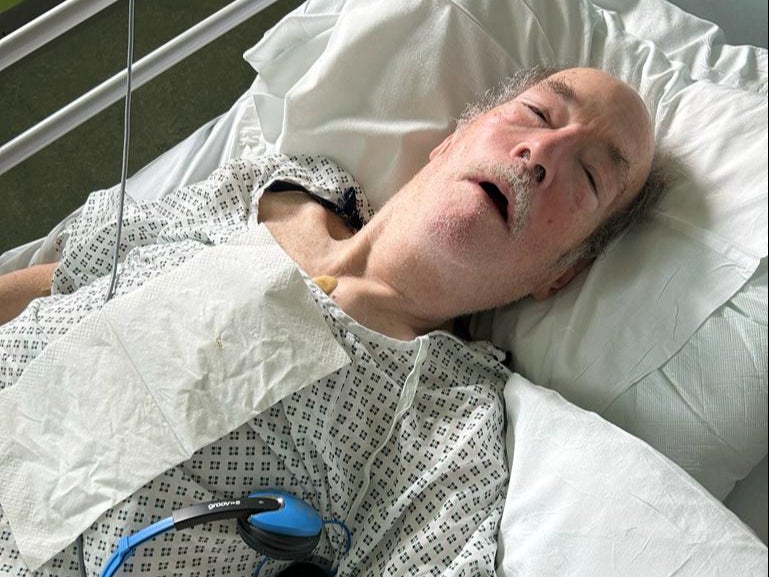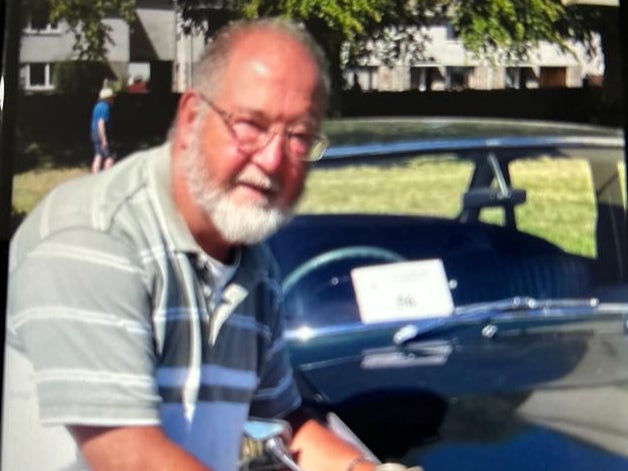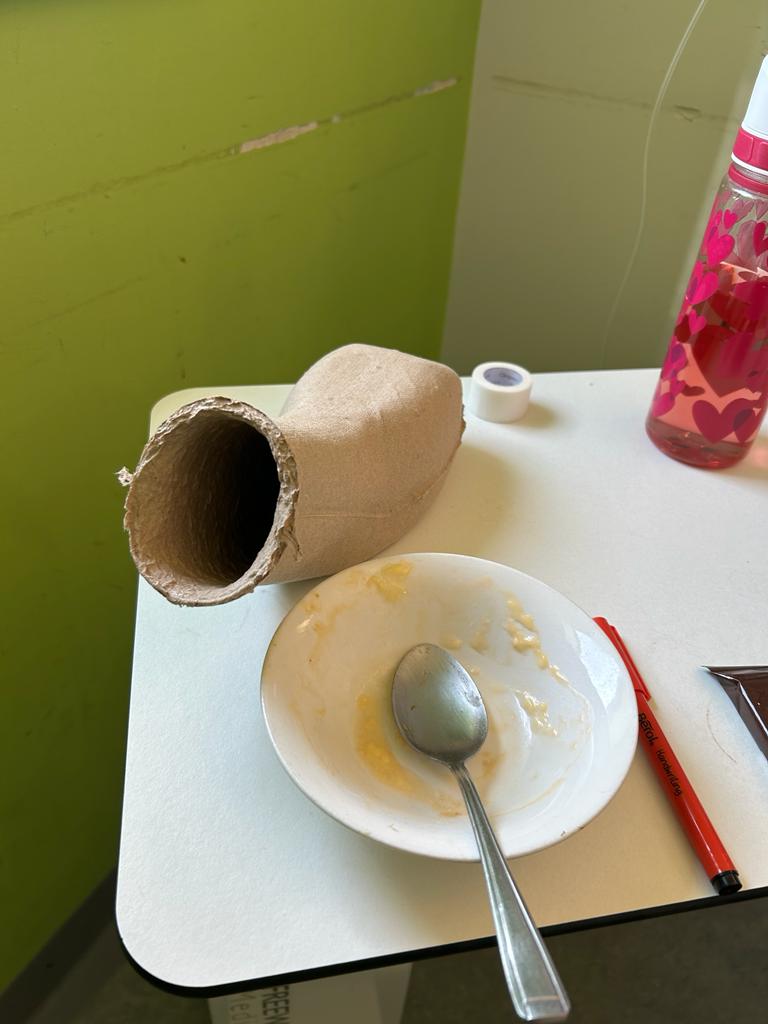Lying in agony in urine-soaked sheets: the horrific reality of patient life on an NHS ward
As hospitals burst at the seams with almost 95 per cent of beds full, health correspondent Rebecca Thomas reveals one 73-year-old’s ‘nightmare’ experience on an NHS ward


Your support helps us to tell the story
From reproductive rights to climate change to Big Tech, The Independent is on the ground when the story is developing. Whether it's investigating the financials of Elon Musk's pro-Trump PAC or producing our latest documentary, 'The A Word', which shines a light on the American women fighting for reproductive rights, we know how important it is to parse out the facts from the messaging.
At such a critical moment in US history, we need reporters on the ground. Your donation allows us to keep sending journalists to speak to both sides of the story.
The Independent is trusted by Americans across the entire political spectrum. And unlike many other quality news outlets, we choose not to lock Americans out of our reporting and analysis with paywalls. We believe quality journalism should be available to everyone, paid for by those who can afford it.
Your support makes all the difference.Left in agonising pain, with staff ignoring his cries for help, Martin Wild called 999 from his hospital bed, desperate for someone to get him the medication he needed.
This was just the beginning of the 73-year-old’s “nightmare” experience at the hands of Salford Royal Hospital.
Over nearly five months, the former car salesman says he was subjected to prolonged periods of neglect, including being left to lie in urine-soaked sheets, pleading for medication.
He lost so much weight that, according to his wife, he became skin and bone. One staff member involved in his care said they’d never seen a hospital patient neglected to such a serious degree.
Mr Wild told The Independent that his time at Salford Royal Hospital has shattered his belief in the NHS and that he believes it is not fit for purpose.
“It was a nightmare in that ward. I didn’t feel like there was much caring going on,” he said.
“I used to lie there at night; I could hear people shouting and screaming for help. It was like being in the third world.”
Have you been affected in a similar way to Mr Wild? email rebecca.thomas@independent.co.uk

Mr Wild’s wife Lorraine, a former nurse, said she has had to battle for Northern Care Alliance, which runs Salford Royal, to carry out a serious incident investigation into his treatment. The investigation outcome initially described the care he received as causing moderate harm, but she fought to have it upgraded to serious harm.
One staff member involved in his care said that, at one point, Mr Wild “looked like he was dead”.
“I’ve seen dead patients who looked better than he did,” they said. “I have never, in my decades-long career seen somebody who was neglected to that degree in a hospital…This was institutional neglect.
“All the other failures would’ve been brought back on track if there had been an overseer of his care.”

Mr Wild’s story comes as The Royal College of Nursing called for an emergency rescue package for nursing as a career after applicants to such degrees fell by almost 10 per cent in a year, according to new figures.
As the NHS battles a rise in unfilled nursing posts – with 43,000 vacant posts, according to the most recent data – hospitals are also facing a crisis on wards with more than 95 per cent of beds filled every day. The “safe” bed occupancy level is generally 85 per cent.
Call to 999
On 8 May last years, two weeks after an operation at the private Alexandra Hospital to treat spinal stenosis – surgery for narrowing of the spine – Mr Wild caught a rare infection and was taken to Fairfield Hospital A&E.
This was the beginning of his five-month ordeal, which would leave a man who spent his free time servicing classic cars as bedbound and wanting to die.
Hours after being taken to Fairfield A&E, he was transferred to Salford Hospital and admitted to an acute medical ward. Lying there in a side room in excruciating pain and “hardly able to move”, Mr Wild begged nurses to give him the pain medication he required.
However, nursing staff told him only a doctor could prescribe this.
“I asked for some pain relief please. They said ‘you’ve had paracetamol that’s all we can give you’, we’ve got no powers to prescribe you [an opioid], you need a doctor. I asked ‘can you get a doctor’ and they said ‘well they’re very busy with over 100 patients to look after and you’re not a priority’.
“I said I was in agony so I phoned 999,’” he said.
It would be hours later, following multiple calls to the hospital reception, that Mr Wild was able to get through to someone able to sort out his prescription.

Weeks later, in what one staff member described as another failing by managers who were “desperate to clear a bed”, Mr Wild was discharged from hospital and sent home in a taxi with 40 boxes of medication, inculding strong opioids. According to Mr Wild, he had warned staff he was not well enough and there was no one at home that weekend to help him.
“It was awful. I was hanging off the rail of the taxi door, leaning forward trying to rest my head on the dashboard to ease my pain a bit.”
Days later he’d become so unwell again that he had to be readmitted to hospital through A&E again.
‘Horrendous’ care
Mr Wild said the “horrendous” ward care continued during his second admission to the hospital.
“I was in so much pain, I was shaking. But nobody seemed to bother,” he said.
Mrs Wild, describing one of the worst moments, told The Independent: “There were three full bottles of urine on his table with his food.
“One day he spilled a bottle of urine on his bed at 8:15 am and, despite buzzing for staff for the bedding and nightwear to be changed, they cancelled his buzzer and didn’t come back. This led him to be served breakfast and lunch [and] two lots of medication whilst lying in a urine soaked bed.
“When I eventually arrived to visit him he was beside himself.”

Five months later, in September, Martin was referred to a specialist on a different ward where his care improved. But, by this point, his health had deteriorated so much he’d lost nearly a stone in weight in a single month.
Mrs Wild remembers seeing him in tears, telling her he didn’t want to live. She said: “His body was almost degrading with a lack of nutrients. At one point I thought he’d died.”
A serious incident report found staff failed to identify concerns with Mr Wild’s eating and drinking and that this was down to the knowledge and experience of the nursing staff, who at the time were a junior workforce.
But the report into Mr Wild’s care does not address the complaints around his ward care and failed discharge. He and his wife are currently challenging the Northern Care Alliance on the investigation but have not received a response.
Judith Adams, chief delivery officer for the trust said: “We want all our patients and users to feel that their health and wellbeing is our top priority, and sincerely apologise that this has not been the experience for Mr Wild and his family. “
She said the trust had investigated Mrs Wild’s concerns and fed back their findings to the family and staff responsible for his care. Ms Adams added the trust has had changes to ensure it learns from Mr Wild’s experience.
The Department for Health and Social Care was approached for comment.
Join our commenting forum
Join thought-provoking conversations, follow other Independent readers and see their replies
Comments